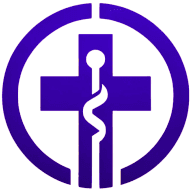17 Takeaways from the Use of Artificial Intelligence in Healthcare
Delving into the transformative role of artificial intelligence in healthcare, this article reveals critical takeaways backed by industry experts. Discover how AI is reshaping diagnostics, treatment, and patient care through strategic adoption and cutting-edge technology. Insights from seasoned professionals provide a deep dive into the future of healthcare, shaped by the precision and efficiency of AI.
AI Democratizes Advanced Diagnostics
As a senior health care technology strategist with over 18 years of experience bridging clinical innovation and technological transformation, the most profound insight from AI's integration into health care is its potential to democratize advanced diagnostic capabilities while simultaneously personalizing patient care at an unprecedented scale.
The real revolutionary potential of AI in health care isn't about replacing medical professionals, but augmenting human expertise with extraordinary computational intelligence. We're witnessing a fundamental shift where AI becomes a powerful diagnostic co-pilot, capable of analyzing complex medical imaging, predicting potential health risks, and identifying nuanced patterns that might escape human observation.
Our observations suggest that AI will fundamentally reshape health care delivery by enabling three critical transformations: predictive prevention, precision diagnostics, and personalized treatment protocols. Imagine AI systems that can analyze a patient's genetic profile, lifestyle data, and historical health records to generate hyper-personalized risk assessments and proactive intervention strategies.
The most exciting aspect is how AI can democratize access to sophisticated medical insights. In regions with limited medical infrastructure, AI-powered diagnostic tools could provide world-class medical analysis, bridging critical health care gaps and potentially saving countless lives by enabling early detection and intervention.
Machine learning algorithms are becoming increasingly sophisticated at processing complex medical data, transforming health care from a reactive model to a predictive, personalized ecosystem. We're not just talking about incremental improvements, but a fundamental reimagining of how medical knowledge is applied to individual patient care.
The future of health care isn't about technology replacing human expertise, but creating a symbiotic relationship where computational intelligence enhances human medical judgment, ultimately leading to more precise, compassionate, and accessible health care delivery.

Trust AI Over Human Oversight
The most striking insight I've gained from observing AI's integration into healthcare is a counterintuitive finding about human oversight. Recent studies suggest that including a human doctor in the loop can actually increase the likelihood of misdiagnosis compared to AI working independently.
This challenges our traditional assumptions about the necessity of human supervision in AI-assisted medical decisions. This observation is particularly relevant given that the two most common medical professional liability claims are failure to diagnose and failure to treat conditions. While we intuitively want to maintain human oversight, we may need to recognize that AI systems could potentially outperform human physicians in both diagnostic accuracy and treatment planning.
The key to reshaping healthcare delivery may not lie in finding ways to integrate AI into existing human-centered processes, but rather in developing the institutional confidence to trust AI systems when they demonstrate superior performance. This potential is further amplified by AI's unique capabilities in pattern recognition across massive datasets. Unlike human physicians who may see several thousand cases in their career, AI systems can analyze millions of patient records, identifying subtle correlations and rare conditions that might escape even experienced clinicians.
Additionally, AI systems don't suffer from cognitive biases like anchoring or availability bias, which are well-documented sources of human medical error. The economic implications are equally significant - AI could help address the global shortage of healthcare providers, particularly in underserved and rural areas where access to specialists is limited.
However, this raises important questions about medical liability frameworks and how they need to evolve. If an AI system becomes demonstrably more accurate than human physicians in certain domains, we may need to reconsider whether requiring human oversight in these areas is actually meeting our ethical obligation to provide the best possible care to patients.
The future of healthcare delivery might require a fundamental shift in how we think about the role of human medical professionals. While the human element will remain crucial in areas requiring emotional intelligence, complex ethical decisions, and patient communication, the challenge lies in optimizing the division of labor between human and artificial intelligence to maximize the strengths of each.
AI Streamlines Diagnostic Processes
One key takeaway I've observed from the growing use of artificial intelligence in healthcare is its potential to streamline diagnostic processes and improve accuracy. I recently worked with a patient who had been experiencing persistent fatigue and underwent multiple tests with varying results.
Through AI-powered algorithms, we were able to analyze her data more efficiently, leading to a faster and more accurate diagnosis. This experience demonstrated how AI can reduce diagnostic errors and save valuable time in patient care.
As AI continues to reshape healthcare delivery, it will enable more personalized treatment plans and predictive insights. This technology has the power to automate routine tasks, freeing up healthcare providers to focus on delivering more compassionate, patient-centered care.
For future healthcare professionals, understanding how to integrate AI responsibly into practice will be crucial, as it complements clinical decision-making and enhances patient outcomes.

Strategic AI Adoption Enhances Healthcare
The key takeaway from observing AI in healthcare is that adoption must be strategic and problem-focused rather than technology-led.
Through our experience implementing AI for patient-doctor matching, we've learned that success comes from identifying specific healthcare challenges first, then applying AI selectively to solve them - rather than trying to force AI into every aspect of healthcare operations.
As for reshaping healthcare delivery, we believe AI will transform healthcare by first addressing administrative inefficiencies, allowing providers to dedicate more time to patient care.
Just as our patient-doctor matching system helps connect patients with the right specialists more efficiently, future AI applications will likely focus on automating routine tasks and providing decision support - ultimately leading to more efficient, accessible healthcare delivery while keeping the doctor-patient relationship at the center.
AI Shapes Personalized Care
Healthcare stakeholders see a new ray of hope in AI talking about the current set of challenges. Predictive Analytics, personalized treatments, reimbursements, and the list continues, as AI's use in healthcare is expanding each day. Recently, at a Digital Health Expo, I met a fellow healthcare entrepreneur, and we had quite a long conversation on how AI will redefine healthcare workflows.
I have also spent hours researching AI's role in the current healthcare ecosystem. And one takeaway I have is that AI will shape personalized care. As we all know, providers and leaders are fixated on personalized and preventive care; patient-centric care models are used to foster better outcomes. In all this chaos, AI's role will be the ultimate answer to all challenges in delivering personalized care. With large amounts of patient data being generated on a daily basis, it's only AI that can sort and analyze this data to identify patterns to provide clinicians with meaningful insights. That means, using AI-powered analytical tools, clinicians can actually make personalized care suggestions and even focus on preventive care.
Based on my health tech expertise, I think AI will transform healthcare into a more efficient, personalized, and patient-focused field. Personalized treatment of cancer patients will be enhanced with AI-driven analysis of genetic, medical, and lifestyle data. Considering the scope of improvement in AI-based imaging systems, we are also looking to enhance our ultrasound analysis systems. However, there are some basic challenges, such as privacy, bias, workflow integration, and human oversight with the growing use of AI. I believe that with continued innovation, AI will offer more precise, accessible, and equitable healthcare outcomes.

AI Enhances Accuracy and Efficiency
Artificial intelligence (AI) is rapidly transforming modern healthcare, improving how diagnoses are made, treatments are delivered, and data is managed. A key takeaway from its growing use is that AI enhances both accuracy and efficiency in patient care, contributing to better health outcomes and streamlined medical processes.
Key Takeaway: Enhanced Accuracy and Efficiency in Healthcare
AI-driven technologies can process vast amounts of medical data with speed and precision, helping healthcare professionals make better decisions.
Key Improvements Brought by AI:
- Early Detection and Diagnosis: Tools like AI-powered imaging software can detect conditions like cancer and neurological disorders earlier than traditional methods.
- Predictive Analytics: AI models can forecast chronic illness risks, enabling preventive care strategies.
- Data Management: Automating administrative tasks like patient records minimizes errors and allows professionals to focus more on direct care.
How AI Might Reshape the Future of Healthcare Delivery
AI's expanding role is set to redefine healthcare delivery, making care more personalized, efficient, and accessible.
1. Personalized Treatment Plans
AI can tailor treatment strategies based on genetic and patient data, leading to more effective care, such as:
- Cancer therapies matched to specific genetic markers.
- Adjustments in medication dosages for chronic conditions using AI analysis.
2. Telemedicine and Remote Monitoring
AI enhances telehealth by making remote monitoring more efficient:
- Wearable devices can track vital signs and notify providers of health risks.
- AI-powered virtual health assistants can offer basic medical guidance and symptom assessments.
3. Accelerating Medical Research and Drug Development
AI's data processing capabilities can expedite drug discovery and medical research:
- AI can identify drug candidates and predict their effectiveness.
- Machine learning models analyze clinical trials for faster insights.
Challenges and Ethical Considerations
AI also presents challenges:
- Data Privacy: Ensuring sensitive patient data remains protected.
- Bias in Algorithms: Training models on diverse datasets to prevent biased outcomes.
AI's rise in healthcare reveals its power to boost accuracy, efficiency, and patient care quality. With continued advancements, AI will likely shape a future of personalized treatments, enhanced telemedicine, and faster medical discoveries.

Wearable Tech and AI Transform Healthcare
Over the last twelve months I have noticed how AI is being incorporated into wearable take-home tech, and it is changing how doctors evaluate their patients and reshaping healthcare delivery. Though doctor's office visits are essential for patient care, they do not always provide the whole picture of someone's condition. Wearable tech combined with AI is allowing doctors to evaluate real-time conditions, receive alerts to dramatic changes, assess health metrics in new ways, and generally add to the safety and accuracy of patient evaluation. This is changing how doctors view patient conditions and the ways to effectively administer treatment. It is the advent of wearable tech combined with AI that is changing the game and is having a massive impact on reshaping healthcare delivery.

AI Improves Proactive Patient Care
We've been big proponents of encouraging healthcare practices to enable patient communication in the ways the patients wish to communicate with the practice. AI-powered chatbots can answer patient questions 24/7, triage symptoms, and guide patients to the right care provider, all while reducing the administrative burden on staff.
Similarly, predictive analytics can identify at-risk patients early, allowing for preventative interventions that can significantly improve outcomes. We see this with remote patient monitoring (RPM) and how it's saving lives and lowering costs on the health system.
Looking ahead, AI has the potential to reshape the future of healthcare delivery by making care more proactive, accessible, and efficient. This shift toward continuous care could transform healthcare from reactive to preventive, improving patient outcomes and reducing costs.

AI Enables Early Diagnosis and Personalized Care
One thing I've noticed with AI in healthcare is how it's completely changing the game for early diagnosis and personalized care. Take imaging tools as an example - AI can now spot issues in scans that might be too subtle for the human eye, catching problems earlier and giving patients a better chance at recovery. It's not just about speed, it's about accuracy and better outcomes.
AI is going to make healthcare way more personalized. Imagine treatment plans tailored to your genetic makeup, lifestyle, and even environmental factors. AI is helping us get there. And, it's expanding access with things like virtual health assistants and telemedicine, which is a huge win for remote or underserved areas. Of course, we've got to keep an eye on data privacy and ethical concerns, but the potential for AI to enhance the human side of healthcare is pretty incredible.

AI Enhances Precision and Efficiency
One key takeaway from observing the rise of artificial intelligence in healthcare is its potential to enhance patient care through precision and efficiency. For example, AI applications like diagnostic imaging have demonstrated remarkable accuracy, often matching or exceeding human experts. At Tech Advisors, we've seen similar advancements in IT systems where automation streamlines processes, reducing human error and improving outcomes. It's exciting to think about how these tools can save lives, such as AI systems speeding up radiotherapy planning by cutting preparation times by 90%. This could mean the difference between timely care and missed opportunities.
AI will reshape healthcare delivery by integrating patients, caregivers, and providers into a connected digital infrastructure. Imagine wearable sensors monitoring health in real-time and AI chatbots guiding patients through symptom checks or wellness improvements. This isn't just futuristic thinking; it's already happening. I recall a conversation with Elmo Taddeo, CEO of Parachute, about how ambient technology like touchless sensors could revolutionize elder care by identifying risks before they escalate. These advancements promise to make healthcare not only more accessible but also more proactive.
To prepare for this shift, healthcare providers must invest in interoperable IT systems that can support these innovations securely and efficiently. From my experience, the key to successful tech adoption is collaboration. Whether you're a small clinic or a large hospital, work closely with IT experts who understand compliance and security. Start small, perhaps with AI-assisted administrative tasks, and scale gradually. This approach ensures that technology serves its purpose: to improve lives without compromising trust or safety.
AI Enhances Patient Outcomes
One key takeaway from observing the growing use of artificial intelligence (AI) in healthcare is its potential to dramatically improve early diagnosis and personalized treatment. AI is reshaping how healthcare providers detect diseases, predict outcomes, and tailor interventions, ultimately enhancing patient outcomes and efficiency in care delivery.
For example, AI-driven tools like those using machine learning and computer vision are now capable of analyzing medical imaging data with incredible accuracy. In cases like cancer or heart disease, AI can detect abnormalities earlier than traditional methods, enabling timely intervention. This shift from reactive to proactive care has the potential to save lives and reduce the long-term costs associated with delayed treatments.
AI is also transforming personalized medicine. Algorithms that analyze a patient's genetic information, lifestyle data, and medical history can recommend customized treatment plans, ensuring therapies are more effective and reducing trial-and-error prescribing. Platforms like IBM Watson Health have already demonstrated the ability to suggest tailored cancer treatments based on vast amounts of clinical data.
Looking forward, AI could revolutionize healthcare delivery by making care more accessible and equitable. Telemedicine platforms powered by AI can diagnose common ailments through natural language processing or image analysis, enabling remote consultations and reducing the burden on overworked healthcare systems. In under-resourced areas, AI could fill gaps where specialists are unavailable, democratizing access to advanced medical care.
However, this transformation comes with challenges, including ensuring data privacy, minimizing algorithmic biases, and maintaining transparency in AI decision-making. Addressing these issues will be crucial as the technology becomes more widespread.
AI is not just a tool for efficiency but a catalyst for reimagining healthcare-bringing precision, accessibility, and scalability to the forefront of patient care. The future of healthcare delivery lies in the synergy between human expertise and AI innovation, creating a more proactive, personalized, and inclusive system.

AI Simplifies Complex Workflows
One key takeaway from the growing use of artificial intelligence (AI) in healthcare is its ability to simplify complex workflows while enhancing both patient care and operational efficiency. AI is already making a significant impact, automating tasks like scheduling, billing, reminders, and documentation, which allows healthcare providers to focus on their patients rather than being bogged down by administrative duties. At Noterro, for example, we've embraced this shift with tools like AI-assisted note generation, which improves accuracy and saves practitioners valuable time. But beyond the here and now, the real potential of AI lies in its ability to transform healthcare delivery. Predictive analytics and personalized medicine could one day help identify risks and suggest tailored interventions—all seamlessly integrated into daily workflows. The goal isn't to replace the human element in healthcare but to enhance it.

AI Empowers Precision and Personalization
A key takeaway from the growing use of AI in healthcare is its incredible potential to enhance patient outcomes and improve quality of life by delivering personalized treatments. AI's capacity to analyze vast datasets, uncover hidden patterns, and deliver actionable insights is driving a paradigm shift in medical care.
AI in drug discovery is slashing the time and cost associated with identifying treatments. Developing a drug traditionally costs over $2 billion and takes 10-15 years. Much of this time is spent on the necessary, and rigorous clinical trials to meet FDA and other regulatory standards. At Delta4, we've offset much of this with AI-driven drug indication expansion.
By leveraging the known safety profiles of existing drugs, we dramatically shorten timelines and lower costs. Our AI platform, Hyper-C, identified clopidogrel, an established antiplatelet drug, as a potential treatment for Focal Segmental Glomerulosclerosis (FSGS), a rare kidney disease. This discovery progressed from concept to preclinical validation in record time and is now advancing toward clinical trials. Yet despite technological advances, challenges remain.
AI has shown us the possibility of creating new drugs at incredible speeds. Their success rates in early-stage clinical trials present a mixed picture and the long-term efficacy and safety of AI-designed drugs remain under evaluation. However, as AI technology continues to evolve, advancements in algorithms, collaborative research, improved clinical trial designs, regulatory support, increased computing power, ethical AI practices, and the generation of more data are all key factors expected to diminish these challenges, paving the way for safer, more effective, and groundbreaking medical solutions.
A further challenge is the 'black box' problem, where the inner workings of AI systems are difficult to interpret, making it hard to understand how they arrive at their decisions or predictions-particularly in the context of drug discovery. Our platform, Hyper-C, eliminates the problem by providing clear data on the mechanism of action for its drug candidates. The perceived limits are steadily yielding and the hurdles are surmountable, especially when the focus remains on leveraging AI as a tool to enhance human expertise, not replace it. At Delta4, we are dedicated to delivering treatments faster and more efficiently, with every innovation focused on helping patients feel better sooner.

AI Powers Patient Digital Twins
One of the most surprising insights is the emergence of 'patient digital twins' - artificial intelligence-fueled simulations that reflect a patient's biology, lifestyle information, and genetic markers in a virtual representation. Imagine a healthcare version of the flight simulator: doctors can test treatment trajectories, dosage tweaks, or lifestyle adjustments on the 'digital twin' first, iteratively refining their strategy before ever laying hands on the real patient. This type of predictive model doesn't simply enhance precision; it reorders the entire continuum of care from reactive to proactive. By catching potential problems sooner and customizing treatments to an individual's one-of-a-kind profile, we could significantly curtail hospital readmissions and complications. In the long term, AI could make hospitals into boutique centers for acute care while day-to-day health management moves to data-driven, home-based interventions. It's a master plan for healthcare in which prevention and personalization become the default, not an afterthought.

AI Enhances Personalized Patient Experiences
AI in healthcare is proving that precision and personalization are the future. From early disease detection to tailored treatment plans, AI isn't just making care faster—it's making it smarter. For example, AI tools analyzing patient data can spot patterns doctors might miss, leading to earlier interventions and better outcomes. But it's not about replacing humans; it's about empowering them. In the future, we'll see a shift where AI handles the heavy lifting of analysis, freeing up providers to focus on what matters most: patient care. It's tech and human touch working hand in hand.

AI and Telehealth Revolutionize Healthcare
Telehealth and AI are in the beginning of revolutionizing healthcare delivery. In the not very distant future, patients will be able to enter their symptoms into AI, receive a diagnosis, and a doctor reviews the file and signs off on it, recommends more testing, or whatever is the appropriate response to the situation. This obviously won't be available for every ailment. However, it will streamline minor healthcare needs for both doctors and patients. In addition, blockchain technology and automated AI threat detection are making healthcare networks safer than ever.

AI Improves Patient Experiences By Analyzing Data
I've noticed that AI's growing role in healthcare significantly enhances personalized patient experiences. By analyzing extensive patient data, AI enables tailored treatment plans and proactive care, improving patient satisfaction and adherence. These advancements are reshaping healthcare marketing strategies, emphasizing how products and services are presented to consumers in this evolving landscape.




